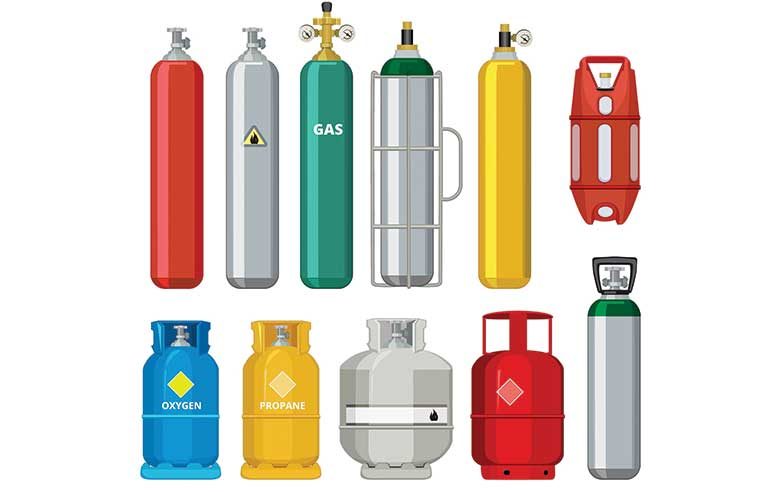Safe handling of compressed gas cylinders

Compressed gas cylinders may look fairly harmless, but the stored gases can be toxic, flammable, oxidizing, corrosive or inert, according to the Department of Energy Office of Environment, Health, Safety and Security.
“In the event of a leak, inert gases can quickly displace air in a large area, creating an oxygen-deficient atmosphere; toxic gases can create poison atmospheres; and flammable or reactive gases can result in fire and exploding cylinders,” EHSS states.
It’s the responsibility of employers to keep workers safe from compressed gas cylinders and their contents: “Employers must evaluate compressed-gas hazards and have an emergency response plan that defines procedures and responsibilities to address emergencies,” Oregon OSHA notes.
Train workers
Employers must educate workers on the chemical hazards of compressed gas cylinders via a hazard communication program, labels and other forms of warnings, Oregon OSHA states. Then, the cylinders should be handled only by trained employees. Other tips from the agency:
- Have the gas cylinder’s Safety Data Sheet easily accessible for workers.
- Ensure gas cylinders are clearly labeled and easily identifiable. Workers should never use a container if they can’t read its label, nor should they use only a container’s color to identify its contents.
- Close cylinder valves when not in use. “Closing the valve isolates the cylinder’s contents from the surrounding atmosphere and prevents corrosion and contamination of the valve,” Oregon OSHA states. Keep valves pointed away from others when opening one.
- Refrain from tampering with or altering cylinders, valves or safety relief devices.
- Never place a gas cylinder near a heat source or allow a flame to contact any part of the container.
Learn more at sh-m.ag/2WHBZjB.
Post a comment to this article
Safety+Health welcomes comments that promote respectful dialogue. Please stay on topic. Comments that contain personal attacks, profanity or abusive language – or those aggressively promoting products or services – will be removed. We reserve the right to determine which comments violate our comment policy. (Anonymous comments are welcome; merely skip the “name” field in the comment box. An email address is required but will not be included with your comment.)

